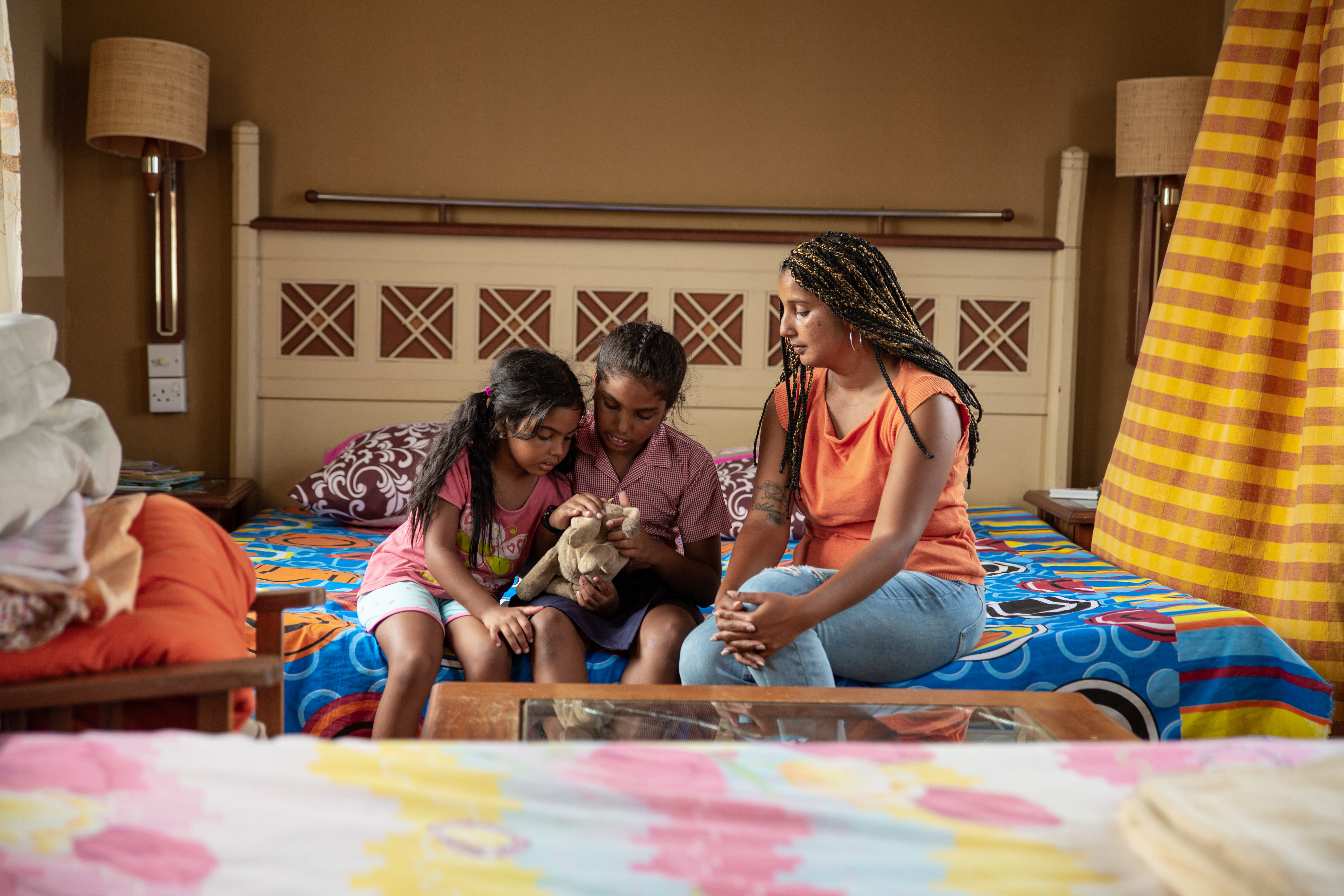Leveraging Long Term Solutions to Build Resilience of Young Girls and Women in SIDS
October 11, 2022

Women count for just under 50 percent of the population of the Seychelles, about half of whom are of reproductive age (National Statistics Bureau, June 2021). Being a Small Island Developing State (SIDS), Seychelles is among the most vulnerable countries to global shocks such as the COVID-19 pandemic and the current Russia-Ukraine conflict. Disruptions in global supply chains have spiked the prices of food and non-food items alike. Yet, the gendered impacts of these global shocks are rarely addressed. For example, there is little reporting on the impact of the increasing commodity prices on menstruating women and girls. Menstruating products furthermore fall in the aggregated category of ‘miscellaneous and others’ in the consumer price index, which has seen a 6 percent increase.
During a recent solutions mapping activity in Seychelles, the Accelerator Lab met the Ladies' Circle International group, historically an international social networking organisation for young women. Founded in 1932, the Ladies' Circle works to engage, educate and empower the people of Seychelles by tackling issues that women face in their daily lives. One such issue is the continuous taboo and stigma around menstruation, and its various impacts on women and girls, especially on those from low-income backgrounds.
From the rise in energy prices to the alarming food shortages, the Russia-Ukraine war has been testing global economies. SIDS are fighting their own battles because of their high dependency on trade. In Seychelles, the problem is even more acute, as its small scale limits the scope for mass production, trade and economies of scale. Current world affairs have urged SIDS to reimagine local capacity and expertise to increase resilience and self-sufficiency. Despite the rhetoric, there is little attention on how women are facing and are going to face the ripple effects of the post-pandemic reality and the war.
During a conversation with Nichola Jean-Louis, the Vice-President of Ladies' Circle Seychelles, she highlighted several issues that Seychellois women and girls face. Ms. Jean-Louis outlined the low level of awareness regarding menstruation in low-income households; the impact of inflation on prices of menstruation products ranging from SCR 24 for sanitary pads all the way to SCR 79; and equally the huge monopoly that exists on imports of sanitary pads. These combined challenges have resulted in households facing severe difficulties, especially where women and girls are more numerous. A 2022 World Bank report[1] indicates that the poverty incidence is higher among larger households and households headed by younger individuals and unmarried women.
This development challenge is socio-economic and is gendered. According to the UNDP rapid assessment of the impact of the war on the Seychelles, most products – food and non-food items alike – witnessed an increase in prices. Combined with human insights such as those collected by civil society or self-organised groups who work closely with vulnerable and marginalised women and girls, this shows that global inflation could potentially have a real impact on women and girls.
Solutions that will be required to build resilience will thus need to take into consideration the lived experiences and needs of women and girls.
"Long-term solutions designed for women and girls should be promoted."
Big Wins
In Seychelles, there has been a recent win, thanks to a campaign called ‘The Bleeding Ladies’ led by the Ladies' Circle. Lobbying for access to affordable hygiene and sanitary products for women and girls, the campaign resulted in the government taking measures to make menstrual hygiene products available to all girls in Seychelles in both state and private schools as of January 2022.
Even if they are laudable, results like these are not enough. In further conversation with Nichola, it becomes clear that many girls are not in school, and many women who are struggling to make ends meet find it difficult to afford the monthly stock of menstruation products. Globally, the cost of producing menstruation products is increasing, and therefore lessening supply. At some point – if they are not being felt already – the effects will soon be felt at local level in the poorest communities in the Seychelles.
Long-term solutions designed for women and girls should be promoted. For example, in Mauritius, a young female entrepreneur has launched Recycle Moi, which is a cheaper and a biodegradable alternative to sanitary pads. Bringing such products to the local market not only makes a cheaper alternative available but equally raises awareness around menstrual waste and menstrual health management. In Seychelles, the manufacturing capacity is limited, however, solutions that exist in other SIDS can serve as inspiration to build locally apt and viable options.
Preparing for healthy and empowered future generations of women and girls
Against rising food shortages and energy prices, this may not be an obvious nor urgent challenge to tackle, but period poverty can have long-lasting, negative effects on the economic empowerment of women and girls. For a small island economy, it means that adapted solutions are needed, whether these are changes in law and policy, taxation measures or more entrepreneurial action that promotes locally manufactured products.
[1]World Bank Group, 2022, Progress Towards Inclusive Growth: A Poverty and Equity Assessment report for Seychelles.
If you would like to collaborate with the UNDP Accelerator Lab for Mauritius and Seychelles, please email us at acclab.mu.sey@undp.org

 Locations
Locations